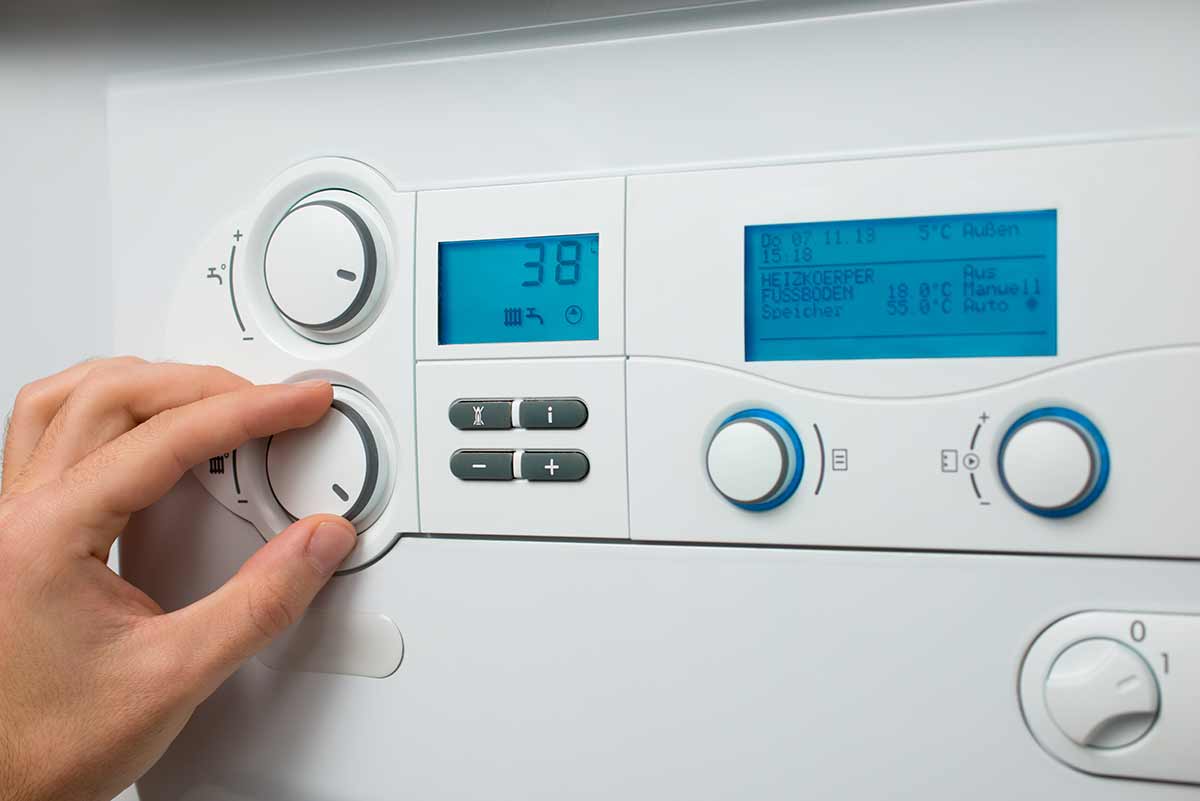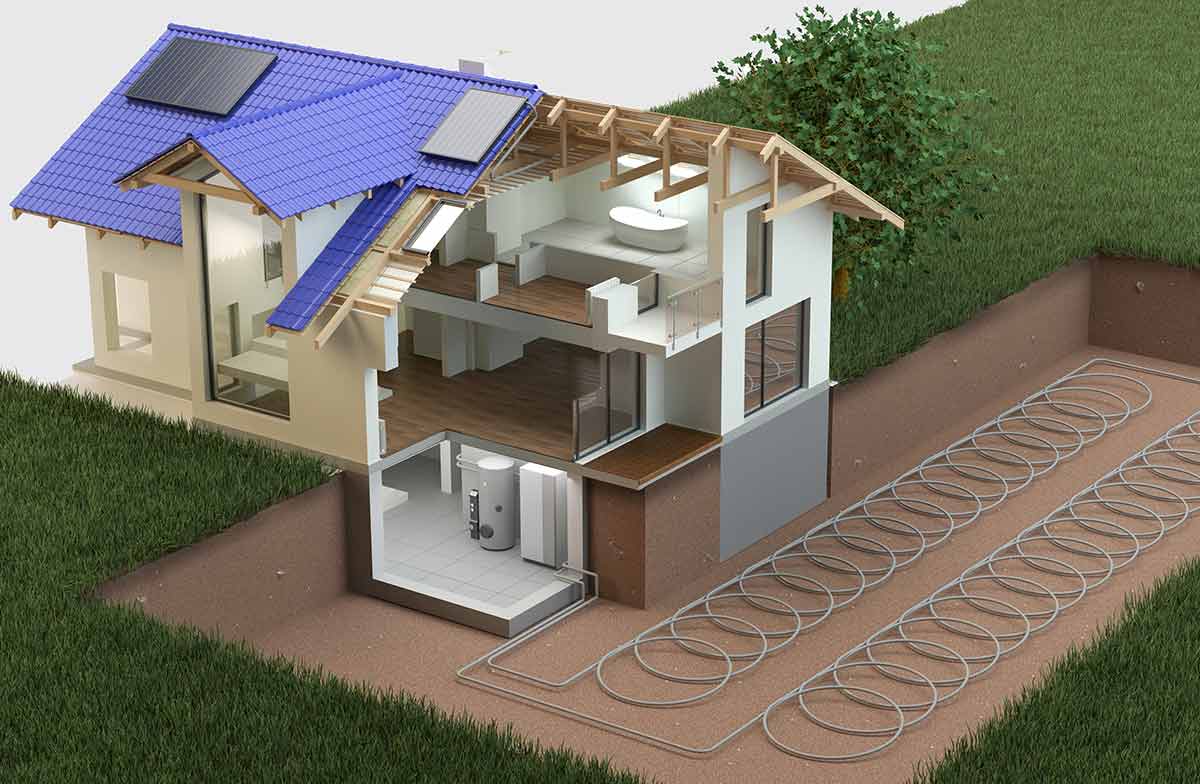Gas boiler ban in 2025? What you need to know

Don't let scary headlines keep you up at night – we debunk some of the myths about the impending ‘gas boiler ban’
Another day, another story about the future of gas boilers in the UK – one of our country's most popular forms of heating.
2025 has been earmarked as a deadline for phasing out gas boilers in a bid to reduce the UK's carbon emissions, of which 14% is currently down to household heating.
There has even been talk of hefty fines and court summons for those who fail to comply, but it's not as black and white as it appears. Here's what you need to know...
What is the Gas Boiler Ban 2025?
In December 2020 the government published its energy white paper ‘Powering Our Net Zero Future’ where it expanded on the Prime Minister’s Ten Point Plan for a Green Industrial Revolution set out the month before.
The paper stated: “We will reduce emissions through shifting from gas to electricity to heat our homes and by better insulating the buildings in which we live and work.”
The paper goes on to further state that from 2025 there will be a ban on introducing gas boilers into new-build homes.
Though this has been treated as a blanket ‘gas boiler ban’ by many media outlets, it’s far from it.
What it means is that instead of relying on fossil fuels to heat our homes, it’s looking likely that the future of home heating will rely on low-carbon alternatives, such as heat pumps or hydrogen-ready boilers, as part of wider initiatives to ensure the UK hits its target of becoming carbon neutral by 2050.
However, the plan has been condemned by the GMB trade union as disruptive and expensive and it is facing increased opposition. In June 2021, the government's Department for Business, Energy and Industrial Strategy shared plans to subsidise the installation of 20,000 new gas boilers in the least energy-efficient homes in a bid to tackle fuel poverty, running contrary to the aims of reducing fossil fuels in the UK.
Will I have to bin my boiler?
No. Nothing will happen overnight – current plans mean gas boilers will be gradually phased out from the mid-2030s onwards.

Will I be fined for having an out-of-date boiler?
Again, no, and certainly not the £10,000 that has been purported by some sections of the press. We will keep an eye on things and let you know if this changes.
Will gas boilers soon become a thing of the past?
Eventually, yes. It makes sense that gas and oil boilers won’t be installed in new-build homes from 2025 onwards as they are generally well-insulated, so alternatives like heat pumps work well. BoilerGuide says that it’s also up to five times cheaper to make the necessary changes to a new build than to an older property.
At present, the government is taking a soft approach, encouraging homeowners to switch to alternative ways to heat their home through schemes such as the Renewable Heat Incentive, but it’s possible there may be legislation to remove gas and oil boilers at some point in the future.
Should I just switch to hydrogen?
Green hydrogen is a low-carbon alternative to heating your home but it’s not without its problems.
BoilerGuide says: “One issue, and an important one – is there is not enough of it. Producing hydrogen in such large quantities is expensive and also emits carbon. There are methods to overcome this, namely electrolysis (the process of splitting water into oxygen and hydrogen) being powered by renewable forms of electricity, but this will take time and careful planning.”
But if enough hydrogen can be produced – and the government has recently pledged its commitment by releasing its UK Hydrogen Strategy in August – it would provide homeowners with an efficient way of heating their homes and help us reduce our carbon footprint.
As it stands, most gas appliances in use today can run on a mix of hydrogen and natural gas – about a 20% vs 80% split – and as the use of hydrogen increases, these boilers will be capable of using more hydrogen, meaning that homeowners won’t have to adjust their whole heating systems.
In addition, companies such as Worcester Bosch are working on prototypes of 100% hydrogen boilers, which it believes is the answer to a greener future.
Martyn Bridges, director of technical communication and product management at Worcester Bosch says: “The beauty of hydrogen as an alternative to natural gas is that as well as water as a by-product, we have already solved issues such as visible flame burn using a UV cell. The gas network is also in place, so homeowners won’t experience any major infrastructure disruption.”

Should I install a heat pump?
Despite the fact the government has set itself a huge target of installing 600,000 air source heat pumps into UK households each year, it’s not as simple as just installing one.
Many UK homes – particularly older properties – are too poorly insulated to make the heat pumps effective, so that would need to be assessed and addressed first.
Also, the cost of installing them – between £7,000 and £14,000 according to the Department of Business and Industrial Strategy (BEIS) – and the fact you may need to find space for a hot water tank, buffer tank, extra pipes or even an outdoor unit, puts many homeowners off.
Are heat pumps cheap to run?
This is a tricky one. Though heat pumps are more efficient compared with gas and could cut £1,000 from your gas bill each year, heat pumps are powered by electricity, which is significantly more expensive than gas.
According to UK Power, the energy comparison service, the average cost of gas per kWh is 3.80p, while for electricity it is 14.37p per kWh.
So what should I do?
Keep calm and carry on. For most of us, our boilers will already meet the efficiency standards required for the next decade or more. Those with older boilers coming to the end of their lifespan may want to start considering alternatives but you can still buy a new, more efficient gas boiler and there are no plans for you to be forced into binning your current boiler.
BoilerGuide says: “Modern gas boilers achieve over 94% efficiency and if your boiler is over 8 years of age, it may well be worth considering a replacement boiler. A more efficient boiler means less fossil fuel consumption which in turn results in fewer carbon emissions and will also save you a few quid on your heating bills.”
Main photo: Worcester Bosch
Comments
Be the first to comment
Do you want to comment on this article? You need to be signed in for this feature